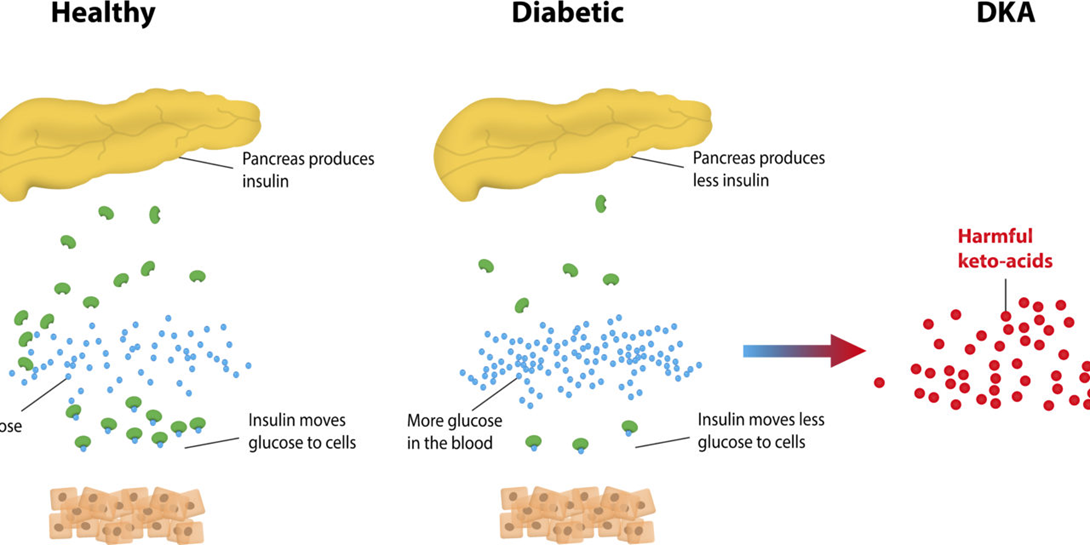A nurse is teaching a client who has diabetes mellitus and receives 25 units of NPH insulin every morning if their blood glucose level is above 200 mg/dL. Which of the following information should the nurse include?
Discard the NPH solution if it appears cloudy.
NPH is an intermediate-acting insulin.
Freeze unopened insulin vials.
Shake the insulin vigorously before loading the syringe.
The Correct Answer is B
Choice A reason: This is incorrect because NPH insulin is normally cloudy and should be gently mixed before use. However, the nurse should discard the solution if it has clumps, flakes, or crystals.
Choice B reason: This is correct because NPH insulin is an intermediate-acting insulin that has a slower onset and longer duration than short-acting or rapid-acting insulins. The nurse should explain to the client that NPH insulin provides basal coverage and may need to be combined with other types of insulin to control blood glucose levels.
Choice C reason: This is incorrect because freezing insulin can damage its potency and effectiveness. The nurse should instruct the client to store unopened insulin vials in the refrigerator and opened vials at room temperature.
Choice D reason: This is incorrect because shaking insulin can cause air bubbles and frothing, which can affect the accuracy of the dose. The nurse should instruct the client to roll the insulin vial between the palms of the hands to mix it gently.
Nursing Test Bank
Naxlex Comprehensive Predictor Exams
Related Questions
Correct Answer is B
Explanation
Choice A reason: Insulin glargine is not the type of insulin to use for diabetic ketoacidosis, as it is a long-acting insulin that has a duration of 24 hours and no peak effect. It is used to provide basal insulin coverage and prevent hyperglycemia.
Choice B reason: Regular insulin is the type of insulin to use for diabetic ketoacidosis, as it is a short-acting insulin that has an onset of 30 to 60 minutes and a peak of 2 to 4 hours. It is used to lower the blood glucose level rapidly and correct the acidosis.

Choice C reason: Insulin detemir is also not the type of insulin to use for diabetic ketoacidosis, as it is a long-acting insulin that has a duration of 12 to 24 hours and no peak effect. It is also used to provide basal insulin coverage and prevent hyperglycemia.
Choice D reason: NPH insulin is also not the type of insulin to use for diabetic ketoacidosis, as it is an intermediate-acting insulin that has an onset of 2 to 4 hours and a peak of 4 to 12 hours. It is used to provide intermediate insulin coverage and prevent hyperglycemia.
Correct Answer is A
Explanation
Choice A reason: This is correct because hemoglobin A1C level reflects the average blood glucose level over the past 2 to 3 months. It is a reliable indicator of the patient's glycemic control and adherence to the antidiabetic therapy. The goal for most patients with type 2 diabetes is to keep the hemoglobin A1C level below 7%.
Choice B reason: This is incorrect because serum insulin level is not a good measure of the patient's adherence to the antidiabetic therapy, as it may vary depending on the type, dose, and timing of the insulin or oral antidiabetic agents. Serum insulin level may also be affected by other factors, such as stress, infection, or exercise.
Choice C reason: This is incorrect because fingerstick fasting blood glucose level only reflects the blood glucose level at a single point in time. It does not provide information about the patient's long-term glycemic control or adherence to the antidiabetic therapy. Fingerstick fasting blood glucose level may also be influenced by the patient's diet, activity, or medication intake before the test.
Choice D reason: This is incorrect because hemoglobin level is not related to the patient's adherence to the antidiabetic therapy, as it measures the amount of oxygen-carrying protein in the red blood cells. Hemoglobin level may be affected by conditions such as anemia, dehydration, or blood loss.
Whether you are a student looking to ace your exams or a practicing nurse seeking to enhance your expertise , our nursing education contents will empower you with the confidence and competence to make a difference in the lives of patients and become a respected leader in the healthcare field.
Visit Naxlex, invest in your future and unlock endless possibilities with our unparalleled nursing education contents today
Report Wrong Answer on the Current Question
Do you disagree with the answer? If yes, what is your expected answer? Explain.
Kindly be descriptive with the issue you are facing.
